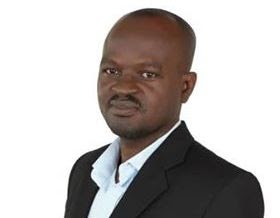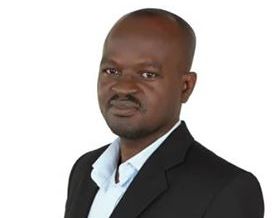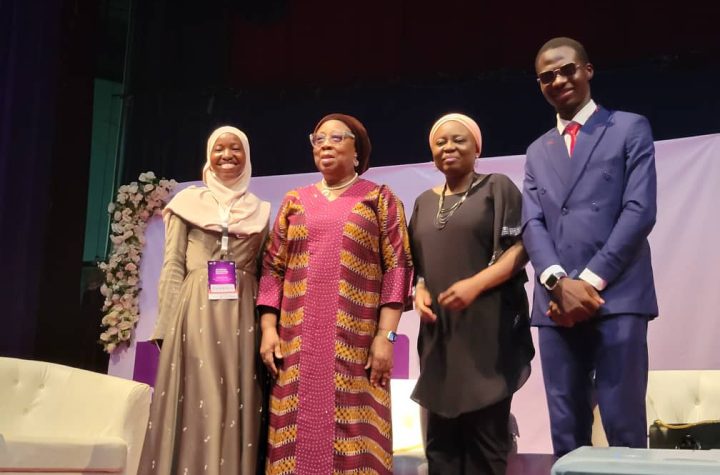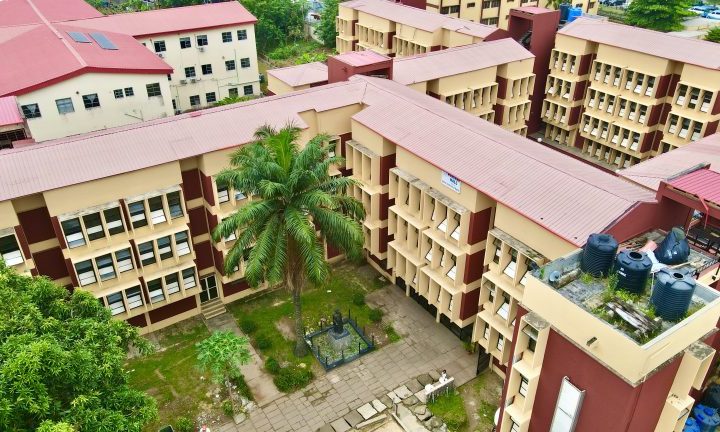
- We expect to become a faculty by November
 |
| Dr. Adepoju Tejumaiye |
Associate Professor Adepoju Tejumaiye, Acting Head, Department of Mass Communication, University of Lagos in this interview with PAUL AGADA and OGUNLEYE ABIOLA, shares his experience so far leading the department, the department’s resolve to adapt to global trends and preparedness to transform to a faculty.
Can we meet you, sir?
My name is Joseph Adepoju Tejumaiye. I am a staff member of the Department of Mass Communication, University of Lagos.
I have a Ph.D. in Mass Communication and presently, I am an associate professor. I became an Associate Professor in February 2016 and am presently being processed for the next level.
My BSc, MSc, Ph.D. were all from this university and our great department.
On August 1st, 2020, you emerged as the acting HOD of the department. How has the journey been so far?
It has been so wonderful, peaceful and beautiful, and I give glory to God. This department is a great department. At least among the members of staff, there has been no war.
Gone are the days when academics fight one another. Now, there is oneness and unity.
We often have arguments but we resolve them. We don’t go the way of our elders that would fight and even go to the media to fight.
It’s been beautiful because I have wonderful colleagues. When they see something they’re not happy about, they tell you. They express their displeasure and we address the issues together and that’s the end of it.
It’s been also challenging; I won’t lie to you. In fact, I was surprised that I was asked to lead. When I heard the information in late July, I was surprised.
But, I give all the glory to god. What God has done, he has done it. So far, as I said, I’ve received the support of my colleagues. The support has been massive and wonderful.
The COVID-19 pandemic has disrupted all facets of human existence, communication inclusive. In what ways is the department ready to adapt to the new normal?
The question should be what is the department doing to combat COVID-19. And the school management has been doing wonderfully in that regard.
You are aware of the fact that the university said no student should come to campus. That’s a way to combat COVID-19.
You’re equally aware of the fact that as of today, lectures are online. That is another way of ensuring that students don’t come on campus.
You are equally aware of the fact that at the gate there, the security men check you whenever you’re coming in. If you don’t have your masks, you would not be allowed to come in. You’ll be asked to put on your mask before you come in.
Walk around; you’ll see washing hand basins, sanitizers and what have you. You may not be seeing that in the Department of Mass Communication presently, but that is because students are not supposed to be in school.
Let me tell you one thing I did recently: I’ve observed that some students are usually around at the Photo Lab, like two to three, and I also observed that they were not observing social distancing.
It dawned on me last week that this is not what the school said. The message said they should not come to school.
So, I had to call the officer in charge of the Photo Lab to tell him that this is against what the VC instructed, and he stopped them from coming.
You’ll notice that you hardly see students in the environment now. That’s a non-pharmaceutical measure to stop it [the spread of COVID-19].
The fact is that we’re now in a new normal. The world has really been changed. COVID-19 has really changed the way we do things. So, we have to ensure that things are done in line with the protocols so that the infection can be easily checked.
READ ALSO: Why are you still awake? Sleep and Sleep Patterns among Students of the University of Lagos
Now in terms of curriculum changes, how prepared is the department to adapt to the trends of time curriculum-wise?
You see, we take a cue from the university. Asides from the university Learning Management System, which has been aptly tagged LMS, there is also Zoom.
I’m sure you’ve been receiving lectures on Zoom. I’m sure you’re also aware of the fact that when the lectures began on the LMS platform four weeks ago, there were challenges in the first week. There were serious issues.
You would observe that by the second week, the issues were reducing and today, it [LMS] is working perfectly. If you see any student that is telling you that the LMS is not working, it shows that such a person is unserious.
I’m not trying to do PR for the university now, even if I do, it’s not a bad thing to do based on facts. The LMS is working perfectly and has been complemented with Zoom.
Go out there, and check other universities that are doing lectures online, they are not as okay as the University of Lagos.
As I said, the first week had its issues but that is expected with novel things. The issues were then quickly responded to by the university and we now have it smooth sailing now.
Over the last year, there have been rapid changes and new developments in communication such as crisis management, information technology, digital and social media and the likes. How prepared is the department to adapt to these changes by integrating them into the curriculum?
The curriculum that we are presently implementing was given by the National Universities Commission (NUC).
So, if there are going to be changes in the context you’re talking about, that is to introduce digitization and digital course, the order has to come from the parent body, which is the National Universities Commission (NUC).
Be that as it may, there is nothing wrong in the department ensuring that current trends are inculcated in some courses. And that is what we’re doing.
I’m sure you were taught New Media in your first year; its approaches, types, amongst others. Those are what we mean.
I and my colleagues had a meeting about four or five months ago on how to ensure that our graduates are competitive. The way to do this is to ensure that our graduates align with the realities in the present world.
This means we have to ensure that technological innovations in the present world in the wake of COVID-19 and even before COVID-19 are included in course outlines.
If you’re teaching a course like PRAD Management, you’ll teach something related to technology. If you’re teaching a course in the area of PR or journalism, ensure technology is infused.
I believe you know that even without technology, there is no mass communication. Technology is what has made it mass communication.
What we’re doing, and will continue to do, is to ensure that the realities out there like Twitter, Facebook, blogging, etc., are inculcated in our courses.
You’re aware that the NUC has given the go-ahead that all Mass Communication courses be unbundled to make the department become a faculty.
I’ve been privileged to see some of the courses in the unbundling formula. You’ll be amazed by the time you see them. If not for COVID, the unbundling of mass communication would have been implemented last year.
I have a strong feeling that it will be implemented this year meaning that we are transforming into a faculty. And some of the courses in the area of new communication technology, which is in line with what is happening now, are part of the courses.
Apart from the updates you’ve given concerning the unbundling and its implementation, are there other new developments?
Just like I have said in passing, the latest developments as regards the unbundling in the University of Lagos is that we are most likely to get going with the unbundling by November.
For candidates who are doing JAMB now and recently finished their Post-JAMB, there is every likelihood that they are coming into the unbundling proper. This means that we are going to have five or six departments.
In fact, as a result of the realities out there, what the NUC has done is that the previous seven courses have now been increased to eight.
There is an additional course, strategic communication, which was not in the initial proposal, but the NUC later realised the need for strategic communication [and added it].
All those changes are a result of what is happening out there in Nigeria and the outside world.
I believe you know that LASU started its own as a faculty ten years ago. LASU is the first school that started as a faculty. UNILAG is going by the new dispensation if we are resuming in October or November.
Students have expressed fears about online examinations. What concrete steps has the department taken to assuage such fears?
The exams are going to be just as we have been informed. I’m not sure there are going to be any changes, but I’m sure if there are going to be any changes, the university would keep us informed.
At a meeting sometime two weeks ago, we have been told that the exams would be forty minutes. They didn’t tell us that it’s going to be objective, but the fact is that it’s going to be between 30 and 40 minutes.
Also, before exams, lecturers should give serious, practical assignments, which I have informed my colleagues. I’m sure you have started seeing those assignments.
We have been informed and instructed to give students serious assignments so that it would not be like we are just dashing you marks because the exam is going to be CBT.
Because of this, especially in the area of Mass Communication which is a practical course, we need to give practical assignments. And I know my colleagues must have been doing that — to get it done and present it via Zoom before the final exams, which would be CBT (Computer Based Test).
As an expert in political communication, what advice would you give to practicing and aspiring political communicators as regards staying true to the ethics of the profession even in politics?
There is no two ways to it. Truth is constant. The Yorubas have an adage that says that, “if lies travel for twenty years, it takes just a day for the truth to get to it.”
There are no two ways to it. It’s not a matter of “this is a classroom”; this is the reality — communication is based on truth.
I agree truth is contextual in meaning, so you’re going to manage the way you would tell the truth. There are some unpleasant situations; but even then, you still have to tell the truth.
You manage the way you will tell the truth because if you open it all at once there will be problems. That is one of the things many people out there don’t know. They will say that communicators are liars.
No, I’m not saying some communicators don’t lie; but those communicators who have undergone training and what they are going to do is what we call ‘truth management’.
READ ALSO: Tech Edu. first class graduate- A Jonah in a Joseph
There is also what we call issues management in public relations. They will manage the issue and they will extremely manage the truth.
It is as simple as that; there are no two ways to it. If you told anybody lies now, people are going to get to know and how will you face them consequently?
So it’s better to always tell the truth. But, like I said; manage the issue, manage the way you’re going to bare the truth.
When I say truth management, it simply means that you’re not going to tell them all the truth at the same time, so that there won’t be catastrophe. It depends on the situation anyway — there can be some terrible situations.
Let me just create a picture. Let’s say, you work for a company producing elevators and one way or the other, the elevator crashed and five people die in the accident.
If you’re the person behind the construction of the elevator, you won’t go out and tell them nobody died. You would tell them people died but you would manage the way you release the information.
If you go out and just tell them five people died, there will be negative reactions. But you reveal the truth to them in a calculated manner. Eventually, they’ll get to see the truth and nothing but the truth.
Once you’re managing the truth, you’re telling them the truth, relaying the information bit by bit. When you eventually release the whole truth, they will not be shocked.
Unlike if you release all of it at once, it would just be like the hypodermic needle theory — it would bounce back and they would react negatively.
Communication is contextual and is based on truth telling, not propaganda.
There are occasions when you make use of propaganda. I agree there are occasions in political communication you tell lies.
But then, if you ask me, that’s not the best because, at the end of the day, it’s going to affect you negatively. If you bear the truth in a calculated manner, then that is what we mean by truth management.
Some people will defend you that ‘he said it, he said it’. The whole gamut of truth/issue management is to ensure that there will be no negative reactions.
Final Words
This is our great department and, like I told you when we started, I had all my degrees and academic qualifications here.
I’m glad to be part of this department and I wish you the best of the best. Together let us elevate our department; we don’t have another.
If some years back when I was a student, someone told me I was going to be a lecturer in this department, or even become the HOD, I would have told the person to go and sit down.
I never wanted to be a lecturer but this God, who does not fail, brought it before my way and informed me that this is where I should go. I decided to follow that path and I have not regretted it till today.
It’s been so great and wonderful. There will be challenges along the way. But you know when God says this is what I want you to do, you’ll always overcome the challenges.
To God be the glory for all things.





Well-done, HOD🙇♂️